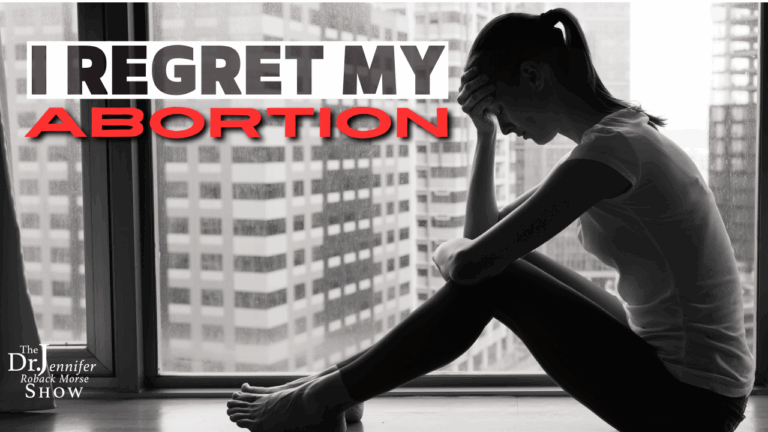By Jennifer Roback Morse
This article was first published September 3, 2018, at National Catholic Register.
COMMENTARY: Faithful Catholics can change some of the incentives the hierarchy has been allowed to operate under.
I know you are upset. I’m upset. The revelations of perverted men using the priesthood for their own purposes has shaken everything we thought we could
count on. Most proposals for reform require cooperation from the very same people who have already failed us. These ideas still leave us, the ordinary
Catholic in the pew, at the mercies of men we no longer trust.
What can we do for ourselves? I’m going to put on my “economist hat” here: We can change some of the incentives the hierarchy operates under.
One positive development is that more witnesses are coming forward to testify. Just as the #MeToo movement gave courage to people harassed in the private
sector, people are telling their stories of abuse in church settings. We are getting a clearer picture of the constraints victims and whistle-blowers
are operating under.
Why don’t the innocent priests tell? Why doesn’t the church secretary or housekeeper who sees something amiss tell someone? For that matter, why don’t
the victims themselves tell? We are finding out why.
The victims fear no one will believe them. Think of poor “James,”
the now 60-year-old man who revealed his story of being abused by Father Theodore McCarrick for 20 years. “James”tried to tell his parents.
They did not believe him, against the word of a respected priest. James began getting into trouble, doing alcohol and drugs. The family thought
Father McCarrick could straighten him out. They encouraged him to spend more time with their son.
James was 11-years-old when this began. He was a little boy. His entire childhood was spent with no one listening to him.
We also have heard from what we might call indirect victims, including whistle-blowers and innocent clergy. Potential whistleblowers fear retaliation.
They maylosetheir church-related jobs. Their
reputations may be slung through the mud. The priests are telling their stories, too. We are learning the pressure they face to conform. We’ve
heard of whistle-blowing priests who were essentiallybanished.
Some good and holy menare living under the thumbs of corrupt superiors, including bishops, seminary rectors or heads of religious orders.
What if these victims, whistleblowers and innocent clergy knew that somebody had their back? What if the church secretary knew someone would give her
another job if she got fired after telling what she knew? What if seminarians knew they could call someone who would show up at the seminary and
make a stink? What if someone had listened to James instead of scolding him and sending him to his room without dinner?
This is what we can do: Listen to the victims. Even if you cannot do another darn thing for them, at least you have affirmed them that they are not
crazy. We have no idea how much that might mean to someone. That is why I wrote up thispetitionfor
“James” and other victims of abuse. It just says, “We believe you.” It is not much at this late date. But better late than never. Sign it.
You are now officially an activist. Take the next step. Listen to the whistleblowers and innocent clergy. Be prepared to support them if they need
it. I’m not talking about a pat on the head. I’m talking about giving a job to the housekeeper who gets fired. Offer the extra bedroom in your
home to the innocent priest whose bishop “sends him away.” Write a letter of reference so the poor guy can get another job.
Recently, I have encountered several seminarians from different dioceses, heading back to school at different seminaries. In each case, I looked the
young men straight in the eyes, and handed them my business card. “My personal cell number is written on the back. If there is any hanky-panky
in your seminary, I want to hear about it.” In one case, the young man’s mother was present.
Okay, I’m just one person. But what if every seminarian went off to school with a few phone numbers in their pockets? These actions may not sound like
a big deal. But a bunch of little things can add up to a big deal indeed.
If abusers thought they would get caught, would they be less likely to abuse? Yes, obviously. If the witnesses who are potential whistleblowers knew
they would be supported by faithful Catholics, would they be more likely to blow that whistle? Yes, obviously. If the guys doing damage control
thought the whistleblowers had alternative sources of support and employment, would that fact reduce their ability to silence the whistleblower?
Yes, of course.
All this points to one thing: Being the backstop, the backup plan, providing the alternative support system means that we are changing the incentives
under which the Church operates. We don’t need anyone’s permission. We don’t need a decision from the bishops’ conference or an intervention from
our state’s attorney general. We can just make it known that we are ready to help.
The one thing economists know is this: People respond to incentives in a systematic and predictable way. We can’t solve everything. But that is no
reason to do nothing. It is a reason to do what we can. We can stand prepared to make nuisances of ourselves. In a nice and respectful way, of
course. But a nuisance just the same.
The collective unwillingness of the laity to make a stink has been part of the cultural milieu that has allowed these wounds to fester. I believe this
is called “clericalism:” undue deference to the clergy. We can put a stop to that, no matter what the bishops’ conference does.
Maybe you can’t picture yourself stalking a bishop’s home or office, like a dogged journalist should. But surely you can picture yourself listening
to someone, supporting someone, reaching out to someone. Start right now. Call that seminarian or former seminarian. Call that person you knew
years ago who tried to tell you something that you didn’t want to hear at that time.
Your material support may mean the difference between the person telling what they know or remaining silent. Your willingness to listen may be a psychological
lifeline to someone who feels isolated.
Let the chattering classes keep chattering. You and I can become part of the listening, supportive Church. And we will make a difference, no matter
what the bishops do or don’t do.



